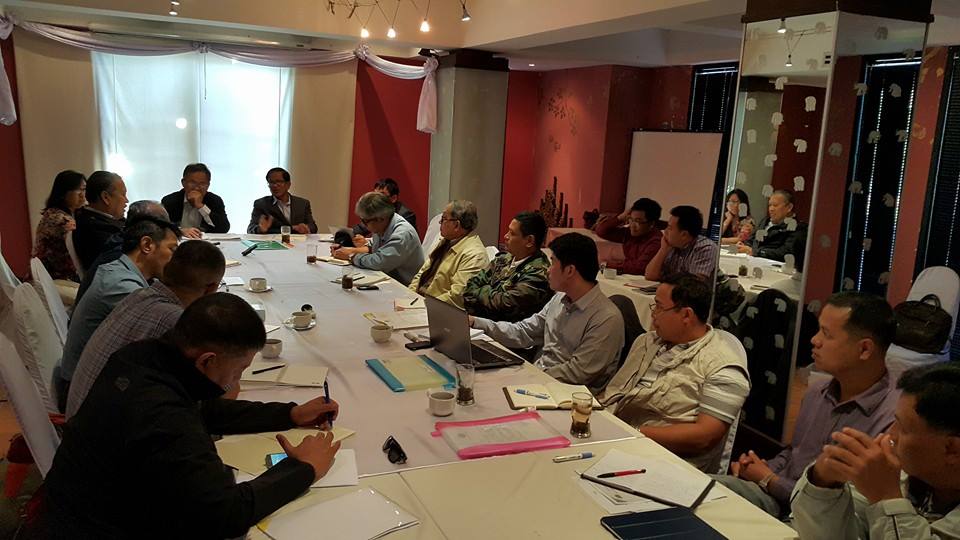The ethnic resistance movements’ Nationwide Ceasefire Coordination Team (NCCT) has chosen five delegates to attend the peace talks in Rangoon on Monday, 22nd December, according to sources.
The delegation will consist of five of the 14 NCCT members and a technical assistance team (TAT) of four people.

The 5 delegates are:
Padoh Kwe Htoo Win Deputy leader, Karen National Union (KNU)
Hkun Okker Membeer, Pao National Liberation Organization (PNLO)
Khu Taw Reh Member, Karenni National Progressive Party (KNPP)
U Twan Zaw Member, Araken National Council (ANC)
Dr Lian Hmung Sakhong, Member, Chin National Front (CNF)
The NCCT’s two other leaders Nai Hongsa (New Mon State Party) and Maj Gen Gun Maw (Kachin Independence Organization) will not be part of the delegation, though both took part in the preliminary meeting with officials from the Myanmar Peace Center (MPC) held in Chiang Mai from 15th to 16th December.
The upcoming peace meeting, overshadowed by the incident on 19th November that killed 23 resistance cadets and wounded 20 others near the Kachin stronghold of Laiza, will be focusing less on the ongoing Nationwide Ceasefire Agreement (NCA) negotiations, according to sources on both sides.
“The government is obliged to do or say something constructive to make up for the Laiza incident,” said a source that requested anonymity. “It is also obliged to take measures to see that such incidents are not repeated. And because of the incident, security for the NCCT delegation needs to be increased.”
As for the NCA drafting process, the NCCT wants to have additional international observers, preferably from the so-called Peace Donor Support Group (PDSG) countries, which included Norway, the UK, the EU, Japan, Switzerland, the US and Australia. Its current observers are the UN and China.
The NCCT is also anxious to find out the government’s response to its earlier suggestions on how to break the deadlock which resulted from the sixth formal meeting between the NCCT and the government’s Union Peacemaking Work Committee (UPWC) held in September.


